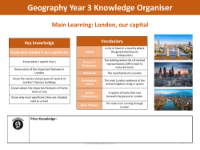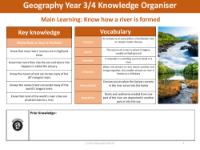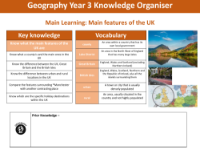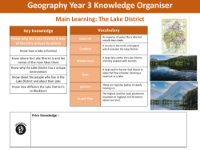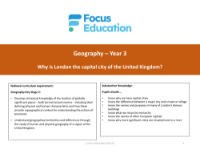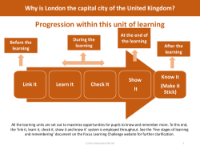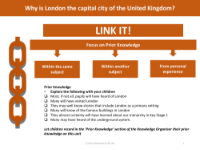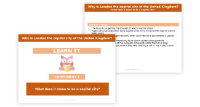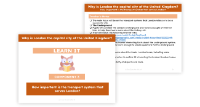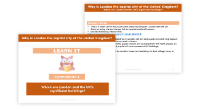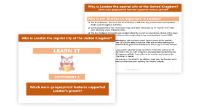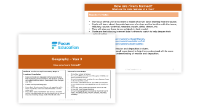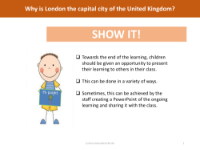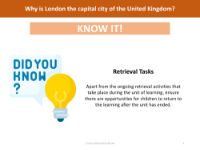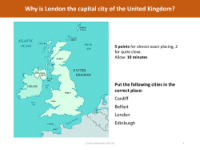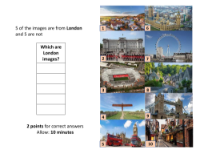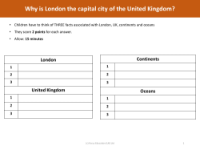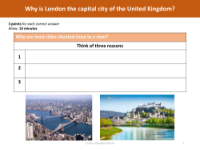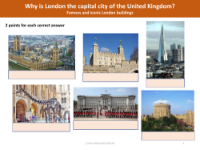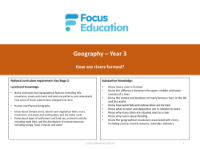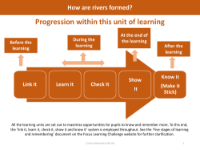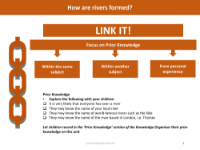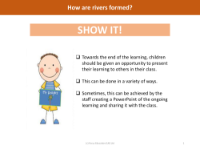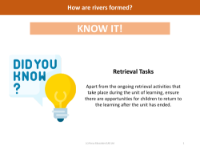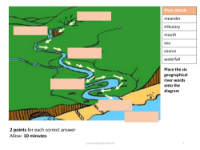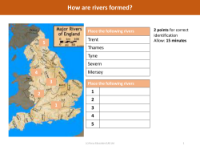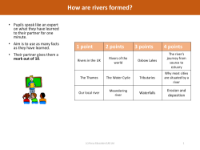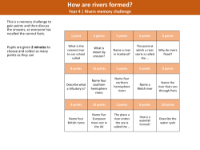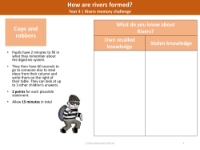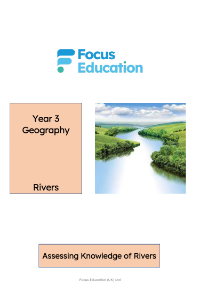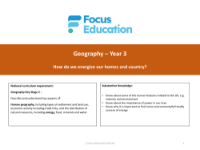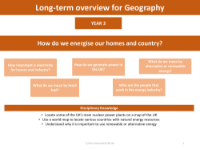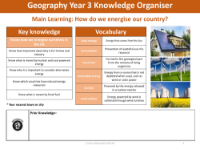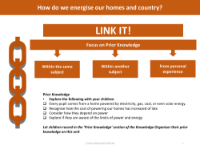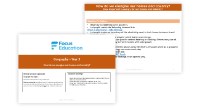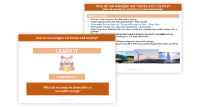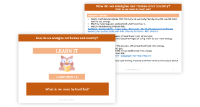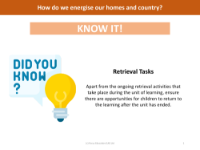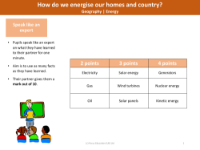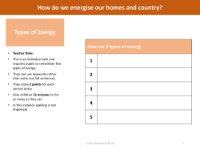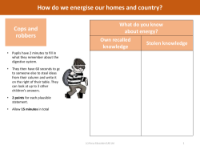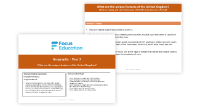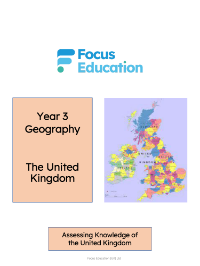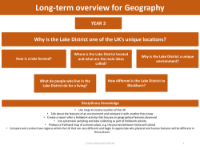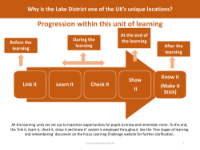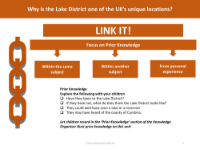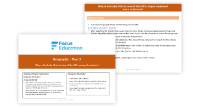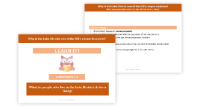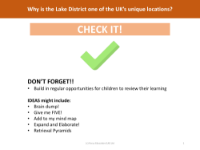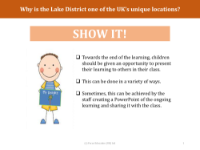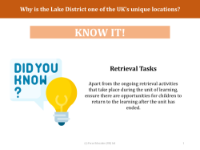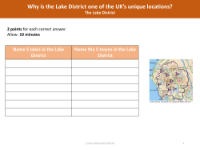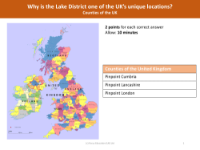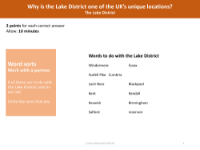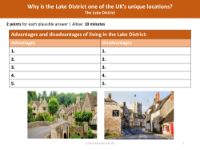Geography - Year 3 - Focus Education
What does the Year 3 scheme cover?
Focus Education prioritises equipping teachers with the essential tools to deliver exceptional Geography lessons, ensuring remarkable outcomes for pupils. This approach not only cultivates an understanding of where places are and how landscapes are formed, but also fosters a lasting appreciation and deep understanding of how the earth’s physical features and atmosphere can be shaped and impacted by human activity.
London
In this unit, grasp the concept of a capital city and familiarise yourself with the key features of London. Explore the names and purposes of several famous buildings in the city and understand the commonality of major cities being situated near rivers. Recognise that while capitals are typically sizable, they may not always be the largest city in their respective countries.
Key questions answered:
- Where is London located and how accessible is it?
- What does it mean to be a capital city?
- How important is the transport system that serves London?
- Which are London and the UK’s significant buildings?
- Which main geographical features supported London’s growth?
Rivers
In this unit, familiarise yourself with the names and locations of many of the UK's longest rivers, recognising that these rivers often originate in highland areas. Investigate how rivers naturally flow into the sea, with the point of entry referred to as the estuary. Understand the historical connection between major cities and rivers, noting that settlements were typically established near water sources due to limited transportation options and the necessity for access to drinking water and food. Explore the water cycle, delving into the stages of evaporation, condensation, precipitation and collection. Additionally, study the formation of natural features such as rapids, waterfalls and valleys, gaining an understanding of the geological processes shaping landscapes.
Key questions answered:
- What are the main features of a river?
- What is the water cycle and why it is so important?
- What are the features of the upper, middle and lower courses of a river?
- Why have so many cities been established close to a river?
- How would you carry out a river study?
Energy
Dive into the understanding of nuclear and coal-powered energy, exploring which countries possess natural energy resources during this unit. Investigate the process of generating electricity through generators, which can be fueled by various energy sources. Recognise that electrical energy is versatile, converting into different forms such as heat, light, sound or movement. Examine the pros and cons of renewable energy sources, including hydropower and solar panels and explore the concept of 'green' jobs associated with environmentally friendly practices. Gain insights into the process of transforming fossil fuels into energy, recognising the implications of various energy choices on the environment and sustainability.
Key questions answered:
- How important is electricity for homes and industry?
- How do we generate power in the UK?
- What do we mean by alternative or renewable energy?
- What do we mean by fossil fuel?
- Who are the people that work in the energy industry?
Features of the UK
Understand the distinctions between the UK, Great Britain and the British Isles, utilising maps to identify various counties and highlighting the names of significant cities, towns or specific features they possess. Delve into the advantages and disadvantages of living in rural versus urban environments, considering the unique features of the United Kingdom.
Key questions answered:
- What is a county, and can I locate some of the UK’s main ones on a UK map?
- What are the differences between the UK, Great Britain and the British Isles?
- What are the main differences between urban and rural locations in the UK?
- What are the main features of Norden and Rochdale?
- Which are the main holiday destinations in the UK?
Lake District
Incorporate systematic sampling and data collection techniques as part of a fieldwork activity during this unit, investigating why the Lake District stands out as unique when compared to other regions in the UK. Analyse the human population of the Lake District, focussing on the prevalence of jobs related to the holiday industry and the economic reliance on the tourism sector. Conclude the unit by comparing the picturesque region of the Lake District to the urban landscape of Blackburn, highlighting differences through the examination of photographic images and maps.
Key questions answered:
- How is a lake formed?
- Where is the Lake District located and what are the main lakes called?
- Why is the Lake District a unique environment?
- What do people who live in the Lake District do for a living?
- How different is the Lake District to Blackburn?
What’s included for Year 3 teachers?
- Full Year 3 National Curriculum coverage
- Detailed lesson plans and presentations
- Visual knowledge organisers for each lesson
- Comprehensive assessment materials
- Links to prior and future learning, progression maps & more!
